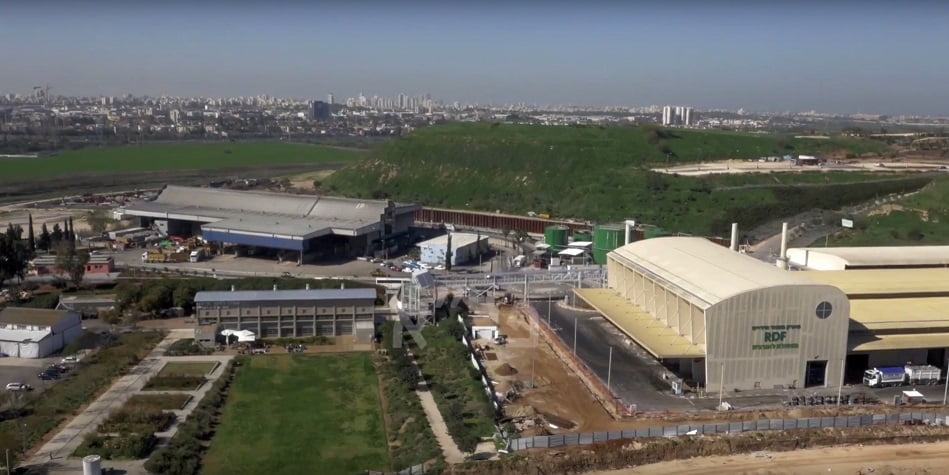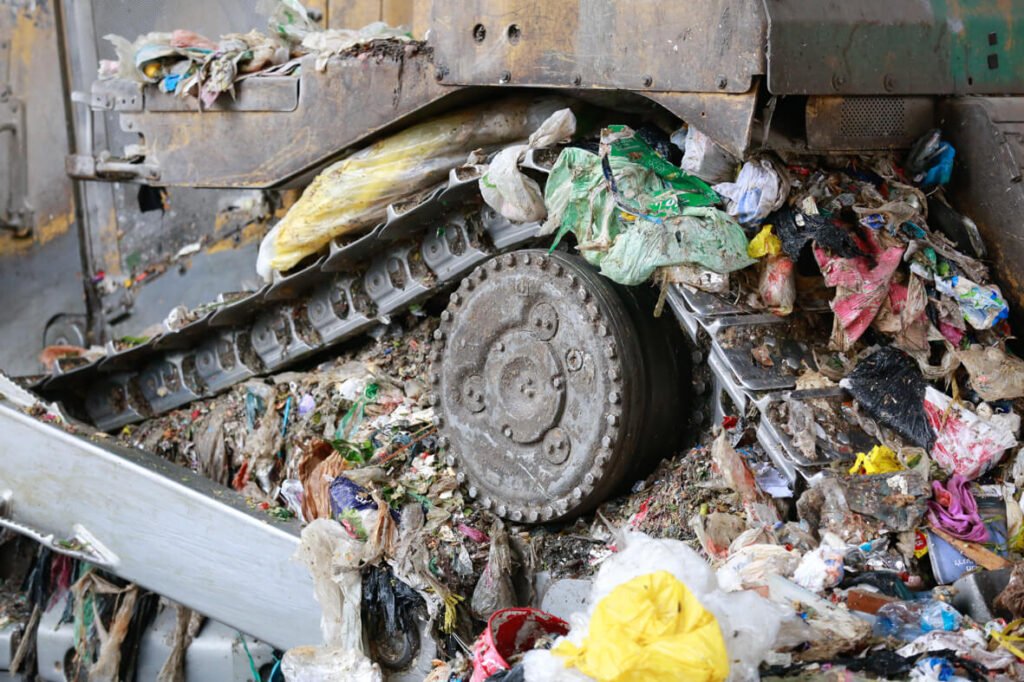This article was written for NoCamels by ZAVIT – Science and Environment in Israel
With the long-term effects of the COVID-19 becoming more noticeable, many of us would rather forget the jarring lifestyle changes we went through during those first few difficult months. And because we were forced to spend more time at home, we started generating more household waste than we would have otherwise.
As early as March 2020, the Ministry of Environmental Protection (MoEP) published data following the initial lockdown period that revealed an increase of 7,000 tons of household waste deposited in landfills compared to the weeks prior.
SEE ALSO: McDonald’s Serves Up Sustainable Trays Made With UBQ’s Waste Conversion Tech
This abrupt 10 percent increase was not necessarily surprising given the stay-at-home orders and the overcompensating quantities of groceries people were buying out of fear and over-preparedness. Not to mention the incredible amount of hygiene products that were purchased, all of which came in single-use packaging in one form or another.
The MoEP also found that the volume of packaging waste had also increased by 37 percent during the initial coronavirus period compared to the year before. Specifically, 1,600 tons of packaging waste were collected in March 2019, and 2,200 tons were collected in March 2020. In addition, the amount of residential electronic waste doubled from March 2019 to March 2020. But despite the sudden escalated volumes of waste, the MoEP did find that Israelis continued to separate their waste into the proper designated municipal bins.
However, proper waste disposal during the initial months of the pandemic was slightly interrupted by the Ministry of Health’s (MoH) early coronavirus guidelines. From March to May 2020, the MoH significantly restricted the ability of retail chains and businesses to receive empty bottles from consumers for deposit exchanges. This essentially put the Bottle Deposit Law on pause, but it was necessary for the sake of protecting public health against opportunities for virus transmission.
This situation led the Knesset to approve a temporary order submitted by the then Minister of Environmental Protection, Zeev Elkin, which provided local authorities with an extra NIS 200 million for domestic waste treatment.
Despite the hardships, however, the Coronavirus provided a unique opportunity to measure our responses to the crisis and learn about our society more critically. To this end, researchers from the Hiriya Recycling Park (also known as Ariel Sharon Park) near Tel Aviv, took advantage of the situation to determine how much waste Israeli citizens were producing throughout the pandemic, and the results were both surprising and informative for future policy decisions.
The first week spike
The new study was conducted between March 2020 and March 2021 at the Hiriya Recycling Park operated by the Dan Cities Sanitation Association.

“The site absorbs about 1.2 million tons of waste per year, which is produced by about 31 local authorities and about 2 million residents,” says Riva Waldman, Director of Communications and Education at the Hiriya Recycling Park. “The site actually serves about a quarter of the residents of the State of Israel.”
According to Waldman, several dramatic changes began being observed in Hiriya during the early days of the virus, which prompted the researchers to dig deeper into the mountains of waste and its data. The researchers noticed that during the first week of the first and tightest lockdown, about 25,000 tons of waste were absorbed into Hiriya. In its entirety, the full initial lockdown generated an average volume of 22,000 tons per week. Plus, the amount of lumpy waste (too large to be thrown in street trash receptacles) and pruning waste from urban trees that arrived at the site also significantly increased.
During the study, researchers examined the amounts of waste being removed each week from each of the small and large local authorities that Hiriya Park serves. They made sure to take external factors that could influence the volume of waste into account such as population growth and holidays where waste production tends to spike.
Sign up for our free weekly newsletter
SubscribeWaste from work vs at home
The researchers found a significant difference between the situation in Tel Aviv and that of the other local authorities that divert their waste to Hiriya. “The findings were surprising,” says Waldman. “In the Tel Aviv metropolitan area, we saw a reduction in the amount of garbage generated compared to similar periods in other years. The change in the Tel Aviv-Yafo area itself was the most dramatic. During the times of tight closures, the amount of waste produced was reduced by almost 25 percent.”
In the other authorities, however, there was an increase in the amount of waste, which the researchers say was probably caused by the lifestyle changes residents were making as a result of working and studying from home. This meant more grocery purchases, more food delivery, and interestingly, an increase in horticultural activity.

“The higher a resident’s socio-economic status, the more waste they create,” says Waldman.
In other words, the drastic changes that characterized our lives during the initial phases of the COVID-19 pandemic were also reflected in our waste. When the Tel Aviv metropolitan area and the city of Tel Aviv-Yafo no longer functioned as Israel’s primary business center, and the population moved to work from home, the waste also moved with them.
The researchers also compared the data they gathered in Israel to the data gathered in other countries.
“We found that conflicting trends were observed around the world. In some places, the amount of waste increased, while in others it decreased,” says Waldman.
Not just the pandemic
According to Waldman, the next step to take is to examine the different types of waste that are dumped during emergencies. “It is important to prepare for waste vehicle surveys so that we can also characterize the impact of emergencies on residents’ consumption habits,” she says. “Such a survey requires a whole set of preparation and a lot of resources, but it is necessary.”
SEE ALSO: KitePride Sets Sail With Sustainable Shopping And A Social Cause
“The study demonstrates that waste treatment services are essential and that they are committed to continue functioning properly even during times of statewide emergency,” says Waldman.
According to her, the findings of the study are of great importance even beyond the days of the COVID-19.
“As we have seen in recent years, there are quite a few crises affecting Israel unfortunately, which require businesses to shut down and force people to say at home for prolonged periods of time. Security incidents are a prime example of this, and it often affects the amount of waste we produce,” she concludes.
Related posts

Resilient And Nutritious New Plant-Based Milk Aims To Make A Splash

Chocolate From Cultivated Cocoa Comes Without Environmental Toll

Plastic Fantastic: Startup Takes PVC Back To Its Crude Oil Roots




Facebook comments